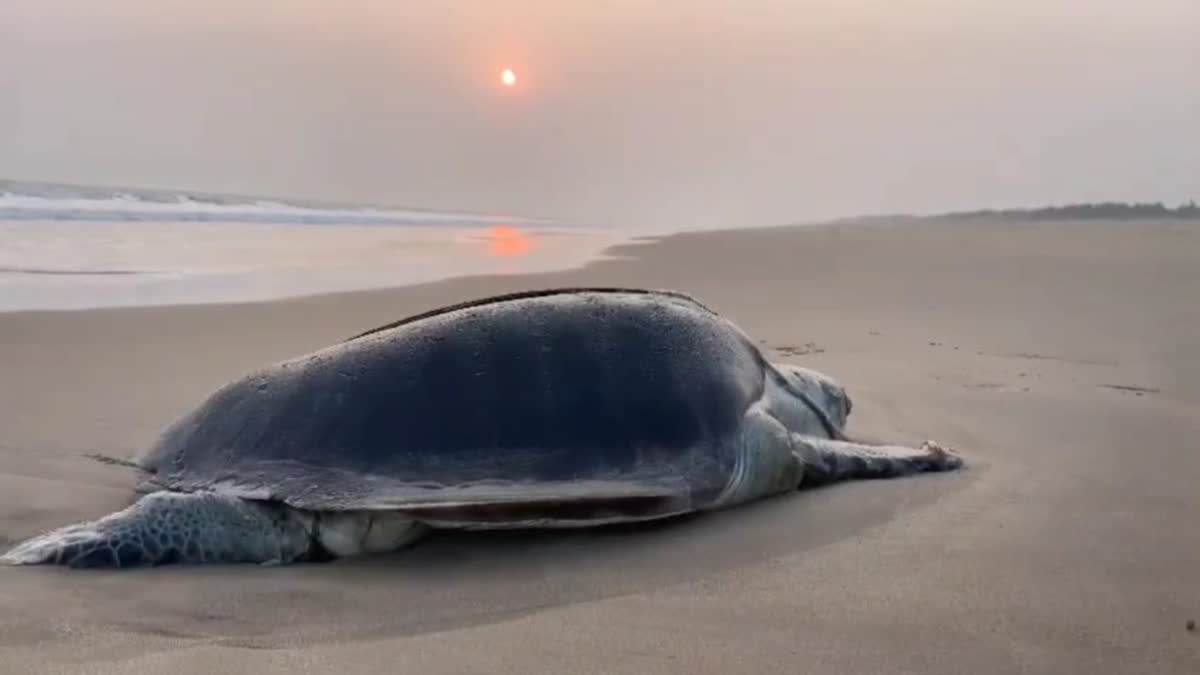Puri/Kendrapada/Bhubaneswar: The arrival of Olive Ridley turtles along Odisha’s coast has led the state to impose a seven-month restriction on fishing activities, including a complete ban on motorized boats and trawlers within a 20-kilometer stretch around nesting areas.
The turtles, which nest primarily on the beaches at the Devi River, Rushikulya estuary, and Gahirmatha Marine Sanctuary, face serious threats from fishing activities during their nesting and hatching season, which runs from November 1 to May 31. The Odisha Marine Fisheries Department and Forest Department are working closely to enforce these protections.
Restrictions in Puri
In Puri district, where the Devi River estuary is a prime nesting ground, the Fisheries Department has issued an alert to trawler operators, warning of legal action for violations. Puri District Additional Fisheries Officer Ramesh Raul explained that, as in previous years, this restriction aims to ensure a safe nesting period. Joint patrolling will be conducted by the Forest Department, Fisheries Department, and police to curb illegal fishing activities. Local trawler associations have also been notified. Raul further stated that the state provides Rs 15,000 in financial assistance to over 3,400 affected fishing families to offset income losses during the restricted period.
Meanwhile, environmentalist Saroj Kumar Jena stressed the importance of stricter monitoring, especially as previous years have seen a decline in turtle numbers. "The illegal trawlers, particularly those using chemical-laden baits and banned gill nets, pose a severe threat to the turtles. Enhanced collaboration is needed between the Fisheries Department and Forest Department to enforce restrictions more effectively, noting that marine litter, including plastic and other debris from storm surges, also needs to be cleared for safer nesting conditions.
No Fishing Zone in Kendrapada
In Kendrapara district, which hosts the Gahirmatha Marine Sanctuary, a year-round no-fishing zone, restrictions are particularly stringent. The Fisheries Department has extended the seasonal ban to the entire 20-kilometer coastline from Dhamra mouth to Devi mouth to protect the turtles during their nesting season. Rajnagar Wildlife Division has established 14 turtle protection camps along this stretch to support patrolling efforts, with dedicated staff deployed at strategic points. Joint patrolling operations by the Coast Guard, Forest Department, Marine Police, and Fisheries Department are on to prevent trawler entry into restricted waters.
Fluctuations in Numbers Cause of Concern
Principal Chief Conservator of Forests, (PCCF) Sushant Nanda said that the state is prioritizing conservation efforts as the Olive Ridley turtles’ nesting cycle begins. “From Astarang to Gahirmatha, we are enforcing strict restrictions to ensure their safety. This year’s spawning process is expected to last seven months, during which we will continue compensating affected fishermen,” he said.
Data from previous nesting seasons makes evident the fluctuation in Olive Ridley numbers. Over the years, the total nesting numbers have varied, with Gahirmatha and Rushikulya remaining the primary sites. For example:
• 2016-17: Approximately 9.75 lakh turtles nested in Gahirmatha and Rushikulya combined.
• 2016-17: Approximately 9.75 lakh Olive Ridley turtles nested across Gahirmatha and Rushikulya.
